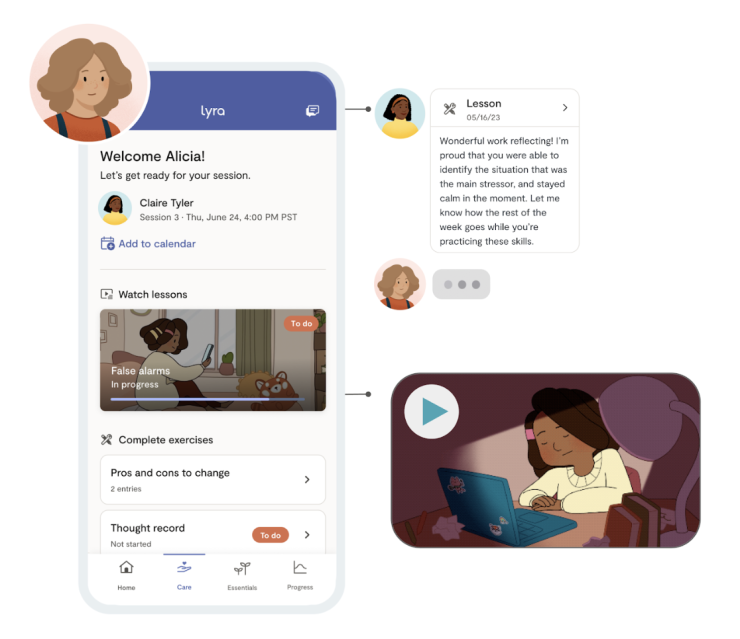Getting the right care for
Today, 80% of children and teens with mental health issues do not receive specialized mental health care, according to the National Institutes of Health. Without intervention, the consequences are dire: According to a Pew Research survey from 2021, 22% of high school students said they had seriously considered suicide, and 10% had made an attempt.
"There is a teen mental health crisis," says Dr. Monica Wu, clinical product lead for Lyra Health's family care offerings. "Most mental health disorders actually begin by the age of 14, which is right in that sweet spot of the teenage years — it's a super formative time, and if we're able to do some early intervention, we really have the potential of altering their trajectory, which is really important."
Read more:
Lyra Health's new platform gives teens access to more than 6,500 providers who specialize in this age group, as well as digital lessons that help teens develop and
"There's definitely a huge ripple effect with teen mental health, and when the teen is struggling, the parents and the families are definitely struggling," Dr. Wu says. "That is inevitably going to impact how they show up at work, because there's going to be that added stress and distraction."
Read more:
Through the platform, teens can connect directly with practitioners via text, as well as access on-demand resources for the time in between sessions, which is where "all of the magic happens," Dr. Wu says.
"If we think about therapy, it's usually once a week for 50 minutes, and between sessions is where your day-to-day life happens," she says. "That's when you really want to practice the therapy skills. But unfortunately, a lot of families and teens just don't get that opportunity if they're not getting evidence-based care, or doing the therapy assignments between sessions."

While Lyra based these offerings after what they
"We wanted this to be an immersive experience and really mobile-optimized, because we know teens have their phone next to them," Dr. Wu says. "In the video lessons, these situations are teen-relevant: Social anxiety, school stress, what do my peers think about me? And we heard from user research, 'It's like watching myself,' or, 'This sounds like what some of my friends are going through.'"
Read more:
Offering benefits that address a family's needs at any age has become increasingly important for employees and employers alike. And while progress has been made, there's always room for more support. Dr. Wu recommends providing flexibility so parents can schedule doctor's appointments or take time off if necessary. ERGs can also be a supportive community for parents to share what they're going through in a "safe space," she says.
"There's more support that's happening, and we can also do more," Dr. Wu says. "Parents should feel supported and seen, rather than just focusing on just their output at work. That will translate to not only better quality of life, but also cost savings for the family and employers as well."






